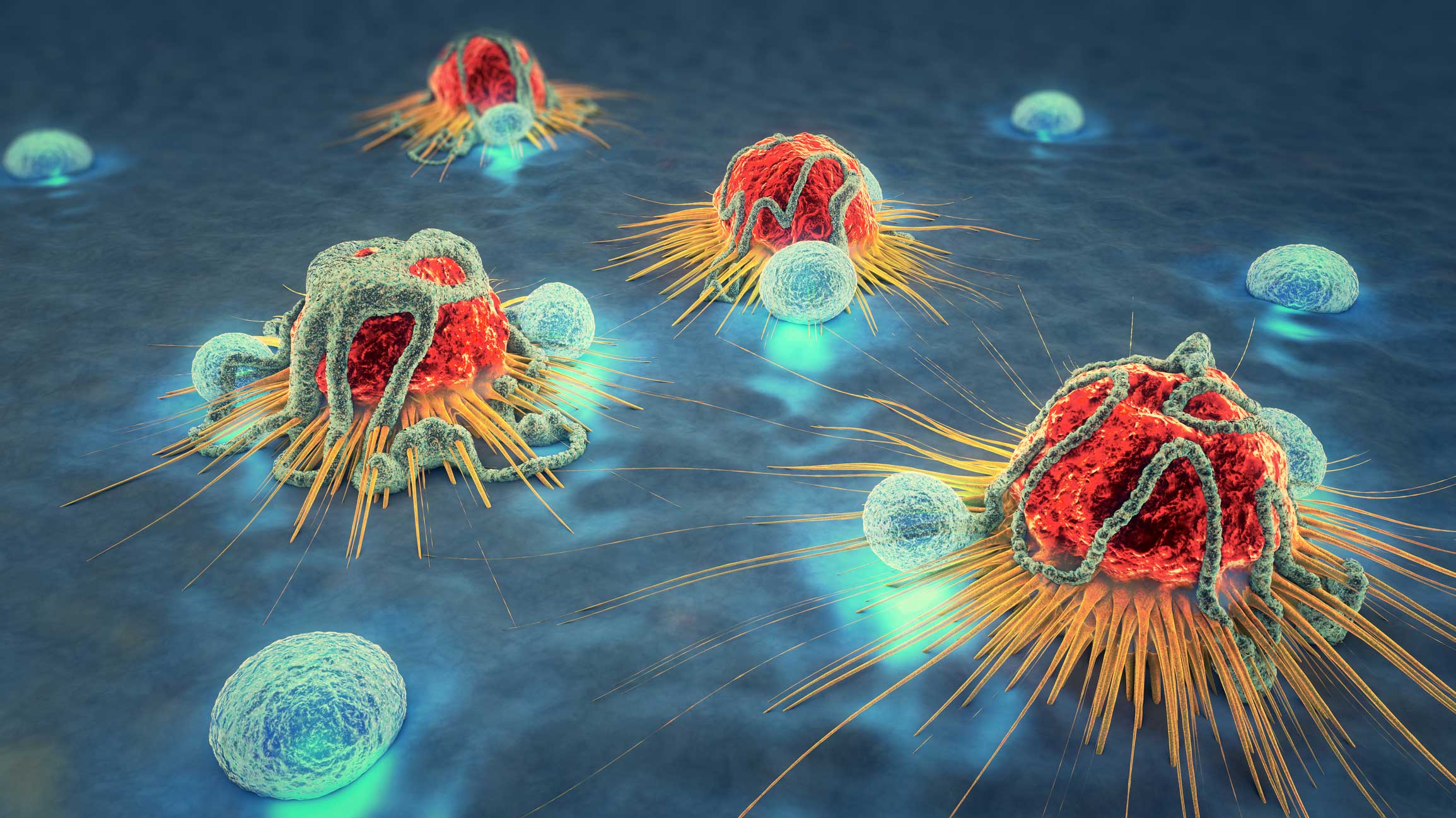By Dr. Wylie D. Hosmer
 Worried about cancer? Click here to get a call back from one of our cancer experts.
Worried about cancer? Click here to get a call back from one of our cancer experts.
The three most terrifying words in the English language may be: “You have cancer.”
But exciting advances in research have uncovered more powerful treatment options, using the patient’s immune system, to target and attack cancer cells.
More research is needed, but this treatment known as immunotherapy is already widely available for the treatment of many common cancers. Besides already approved uses, it is being explored in hundreds of research studies known as clinical trials.
While it has been known for many years that the immune system has the capacity to fight cancer, recent research has uncovered the ways in which cancer can evade and hide from the immune system. The new immunotherapy treatments are designed to help the immune system identify and destroy all cancer cells, including the hidden and tricky ones.
There are two main ways that immunotherapy can empower the body to defeat cancer:
- Stimulating the immune system, forcing it to work harder and smarter to attack cancer cells.
- Providing the immune system with components it will need, such as certain proteins, to make it stronger in the fight against cancer cells.
Worried about cancer? Click here to get a call back from one of our cancer experts.
While immunotherapy treatments can certainly cause side effects, many patients have found that they are minimal compared to more traditional chemotherapy drugs. Another advantage to immunotherapy is that the immune system is now more primed to attack any future cancer cells, leading to hope for more sustained results.
With more advanced styles of treatments, we are able to more effectively fight cancer.
Clinical trials have led some amazing breakthroughs that bring us closer to better cancer treatments every day.
Clinical trials are research studies in which eligible patients volunteer to try new forms of treatments and therapies that can help doctors and researchers test new ways to diagnose and treat diseases, such as cancer and manage symptoms and side effects from the treatments.
While clinical trials might not be for everyone, participating might be something to consider any time you or a loved one is being treated for cancer. Trials are available for all stages of cancer and patients may benefit from cutting-edge treatment while potentially contributing to future advances in cancer care. The result, we hope, is that someday the words “you have cancer” will be a little less scary.
Worried about cancer? Click here to get a call back from one of our cancer experts.

